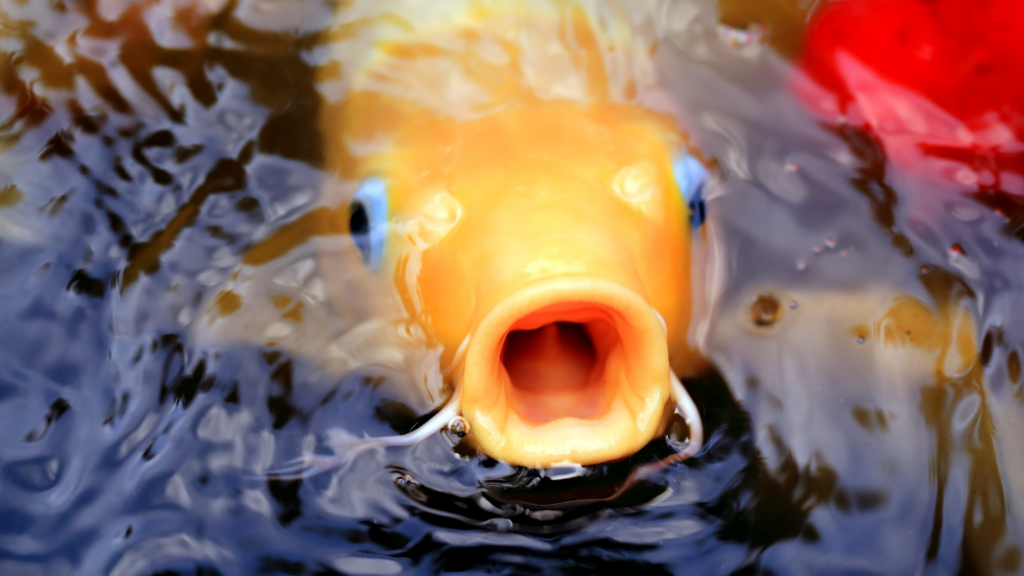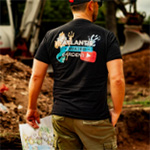
Owning a fish pond is one of the most rewarding ways to bring nature into your backyard. Watching koi glide through crystal-clear water and listening to the gentle sound of waterfalls can melt stress like nothing else. But we’ve been building and maintaining ponds in New Jersey for over 20 years, and we’ve seen what happens when maintenance is overlooked.
Fish pond maintenance in Hunterdon County isn’t just about keeping the water looking pretty, it’s about protecting your fish, your ecosystem, and even your home. Let’s break down the most common maintenance issues new pond owners miss, and how those seemingly small oversights can snowball into bigger problems.
1. Neglecting Routine Debris Removal
New pond owners often underestimate how fast leaves, twigs, pollen, and other debris can collect in a pond, especially in a wooded area like much of Hunterdon County.
What Can Go Wrong
- Decaying debris breaks down into sludge, choking out beneficial bacteria.
- Excess nutrients lead to algae blooms, turning your pond into a green mess.
- Organic waste consumes oxygen, stressing your fish, especially during summer.
Pro Tip
Skim the pond regularly. Use a net weekly and add a skimmer or intake bay to automate the job. For deeper cleaning, a spring or fall pond cleanout will remove muck and restore balance.
2. Underestimating Filtration Needs
Many homeowners assume a basic pump and filter combo is enough. But every pond is different, especially when you add fish.
What Can Go Wrong
- Inadequate filtration means cloudy water and poor oxygenation.
- Fish waste builds up, leading to ammonia spikes and pH crashes.
- Waterfalls may clog, and beneficial bacteria colonies can’t establish.
What to Do Instead
Match your filter system to your pond size and fish load. Biological filtration is a must for fish ponds. Bonus tip: always clean your filter media in pond water (not tap water) to protect the helpful bacteria colonies.
3. Ignoring Water Chemistry
Pond water looks clear, so it must be healthy… right? Not always.
What Can Go Wrong
- Hidden ammonia or nitrite levels can poison your fish.
- Improper pH levels (too acidic or alkaline) stress fish and reduce their immune response.
- Algae thrives when phosphates or nitrates spike.
Fish Pond Maintenance Hunterdon County Tip
Test your water regularly, especially after storms, seasonal changes, or fish deaths. At Atlantis, we use liquid test kits (not strips) for accurate readings. Keep ammonia at 0 ppm, nitrites at 0 ppm, and pH between 7.0–8.0.
4. Overfeeding Fish (or Using the Wrong Food)
Feeding fish is fun, and easy to overdo.
What Can Go Wrong
- Uneaten food sinks and rots, feeding algae and releasing toxins.
- Overfed fish become sluggish and unhealthy.
- Cheap food lacks proper nutrition, affecting color, growth, and digestion.
Best Practice
Feed once a day during warm months, only what they’ll eat in 3–5 minutes. Choose season-specific food: high protein in summer, wheat germ in spring/fall. When water drops below 50°F, stop feeding entirely.
5. Poor Aeration
If you have a waterfall, you might assume that’s enough.
What Can Go Wrong
- On hot summer days, oxygen levels drop, especially at night.
- Fish become stressed, gasp for air, or cluster near waterfalls.
- Uneven oxygen distribution leaves dead zones in the pond.
Fix It
Add an aerator or diffuser in deeper zones. Bonus benefit? Aeration also helps beneficial bacteria thrive and keeps the pond healthier overall.
6. Skipping Seasonal Maintenance
Life gets busy. Plus, if everything looks fine on the surface, it’s easy to put it off.
What Can Go Wrong
- Winter freeze can crack pipes or damage pumps if not properly winterized.
- Spring algae blooms rage if you don’t clean out the sludge.
- Fall leaf buildup can overwhelm your system.
Seasonal To-Do List
- Spring: Full cleanout, restart filtration, replant lilies.
- Summer: Monitor water temps, shade pond, maintain filter.
- Fall: Net the pond, remove excess leaves, prep fish for winter.
- Winter: Shut down unnecessary pumps, run an aerator, keep a hole in the ice open for gas exchange.
Need help with seasonal services? Atlantis Water Gardens offers Fish Pond Maintenance in Hunterdon County year-round to keep your system on track.
7. Forgetting to Quarantine New Fish
You get excited about new koi or goldfish and want to add them right away.
What Can Go Wrong
- New fish may carry parasites or diseases that wipe out your existing population.
- Stress from sudden changes can kill newly introduced fish.
Solution
Set up a quarantine tank for 2–4 weeks before adding newcomers. Watch for signs of illness and treat preventively if needed.
8. Allowing Roots and Surrounding Landscape to Invade
People plant too close to the pond or let grass and shrubs grow unchecked.
What Can Go Wrong
- Tree roots can pierce the liner.
- Organic matter drops constantly into the pond.
- Fertilizers and lawn treatments wash into the water, poisoning fish.
Best Approach
Use gravel perimeter edges and buffer planting zones. Avoid chemically treated lawns or choose pond-safe treatments if lawn care is needed.
9. Not Monitoring Equipment Performance
Pumps, UV clarifiers, and lights are out of sight and easy to forget.
What Can Go Wrong
- A failing pump can stop water circulation overnight, disaster for fish.
- UV bulbs burn out and no longer kill algae.
- Leak issues might go unnoticed until damage is done.
Monthly Check-In
Visually inspect your equipment, test GFCIs, and listen for unusual noises. Schedule regular service if you’re not sure what to look for, we’ve got you covered.
10. Installing Without Considering Drainage or Water Runoff
DIY installations or contractors without pond expertise may overlook the site’s natural drainage patterns.
What Can Go Wrong
- Lawn fertilizer runoff leads straight into your pond.
- Heavy rains cause flooding, erosion, or fish escapes.
- Waterlogged soil threatens your pond’s structural integrity.
Our Take
We design every pond in Hunterdon County with proper grading, drainage swales, and overflow protection. Don’t leave it to chance, poor placement is a costly fix later.
Your Pond Deserves Better Than Guesswork
With over 20 years of experience, global design awards, and weekly educational content on YouTube, Atlantis Water Gardens has earned our place as New Jersey’s trusted pond professionals.
Whether you need a one-time cleanout or ongoing fish pond maintenance in Hunterdon County, we’re the real deal.
Contact us online today or give us a call at 973-627-0515 and get your fish pond the care it deserves!

Founder & Master Pond Builder
Jaak Harju is the founder and master pond builder of Atlantis Water Gardens, a family-owned design and build firm specializing in natural-looking ponds, waterfalls, and ecosystem water features. Since 2000, Jaak has dedicated his career to creating outdoor environments that inspire connection with nature.
With a background in landscape design and construction, Jaak brings artistry and precision to every project. He’s known nationally for his creative stonework, ecological pond design, and educational outreach within the pond-building community. Through his work, videos, and collaborations with other Aquascape-certified contractors, Jaak has helped redefine backyard water features as sustainable, living ecosystems.